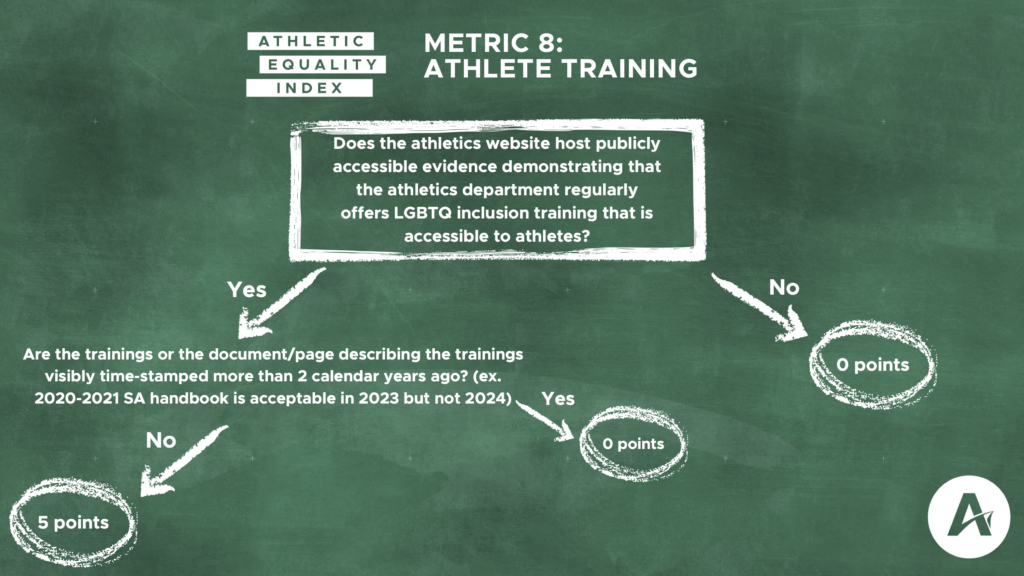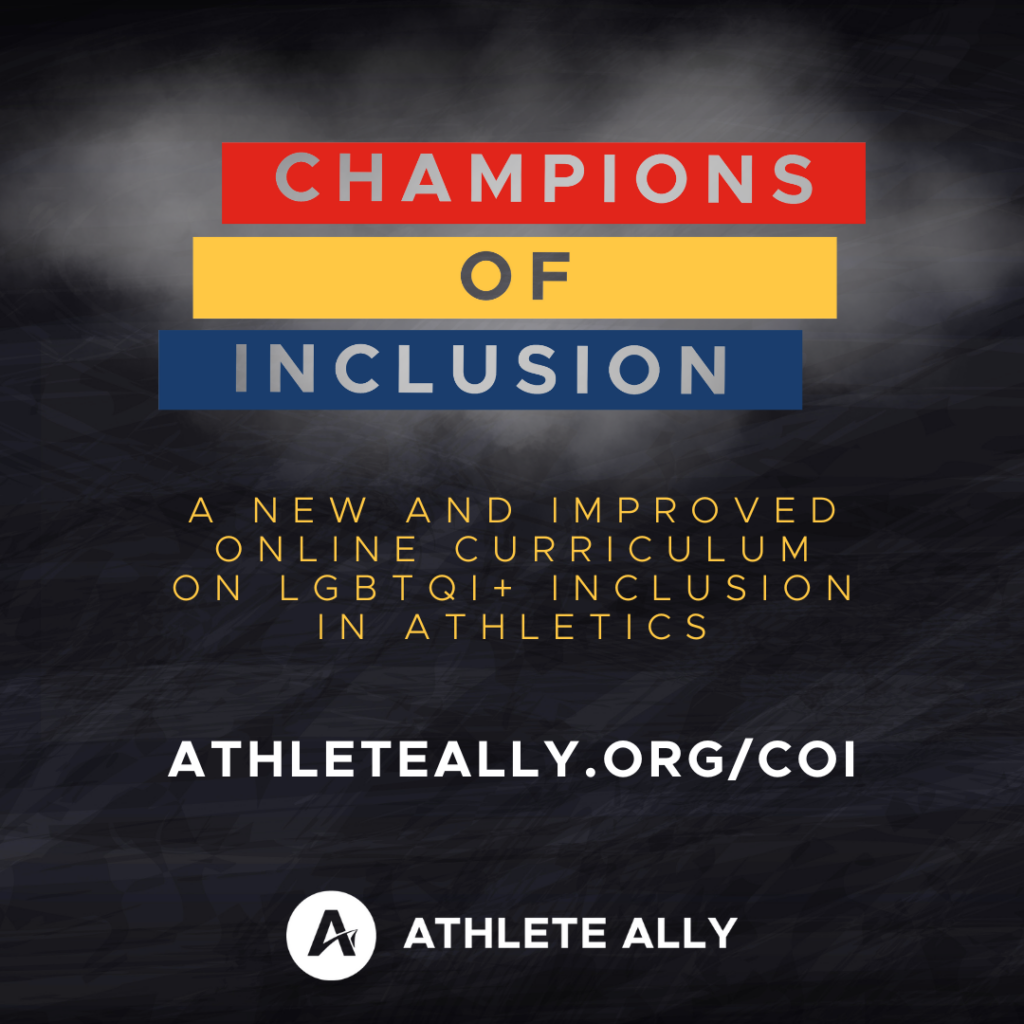Are varsity student-athletes offered an accessible opportunity (i.e., specific to athletics or held in the athletics department) to participate in LGBTQ+ inclusion training?
Methodology update as of July 2023: If AEI evidence (or the document or page containing the evidence) has a visible time-stamp, date range of application, or departmental review date, such time-stamps must be dated within the last 2 calendar years to qualify for scoring purposes. Evidence that is explicitly timestamped more than 2 calendar years before an institution’s annual audit cannot be reasonably assumed to remain unchanged in its application to current students unless explicitly stated by the athletic department. We use calendar years to make these distinctions; for example, a 2020-2021 student-athlete handbook is acceptable evidence for an audit conducted in 2023, but would not be acceptable for an audit conducted in 2024.
- Offering accessible opportunities to participate in LGBTQ+ inclusion training educates student-athletes about their rights.
- Inclusion trainings address fears and stereotypes about the LGBTQ+ community.
- Those who are offered opportunities to participate in inclusivity training are better equipped to set an example for other student-athletes, promote respect for diversity, and support their LGBTQ+ teammates.

Student-athletes’ accessibility to LGBTQ+ inclusion training is critical, especially with regard to understanding their rights and responsibilities concerning the department’s nondiscrimination and sexual harassment policies. When athletes are aware of their department policies and inclusive culture around LGBTQ+ issues, possibly through specific events and initiatives, they experience lower rates of both subtle and blatant ambient heterosexism. The opportunity to participate in this kind of training also educates student-athletes about LGBTQ+ issues and directly addresses fears and stereotypes about the presence of LGBTQ+ people in sport and the locker room. Students who attend LGBTQ+ trainings report “significant learning points related to awareness of LGBT issues on campus, the origins of LGBTQ+ prejudices, and the similarities of LGBTQ+ individuals and heterosexuals. Such findings suggest that ally training programs increase awareness and create alliances between heterosexual and LGBTQ+ students”. Athletes who have access to inclusivity trainings are better equipped to set an example for other student-athletes, promote respect for diversity, and support their LGBTQ+ teammates.
Hong, J. S., Woodford, M. R., Long, L. D., & Renn, K. A. (2016). Ecological covariates of subtle and blatant heterosexist discrimination among LGBQ college students. Journal of Youth and Adolescence, 45(1), 117-131. Publicly available here.
Griffin, P. & Taylor, H. (2012). Champions of respect: Inclusion of LGBTQ student-athletes and staff in NCAA programs. National Collegiate Athletic Association. Publicly available here.
Worthen, M. G. (2011). College student experiences with an LGBTQ ally training program: A mixed methods study at a university in the southern United States. Journal of LGBT Youth, 8(4), 332-377
Athlete Ally’s Champions of Inclusion curricula provides student athletes, coaches and admins with free online education on how to build a more LGBTQI+ inclusive team, campus and community. Learn more at athleteally.org/coi
In terms of AEI scoring, public-facing evidence of athlete participation in Champions of Inclusion equates to full points for Metric 8.
